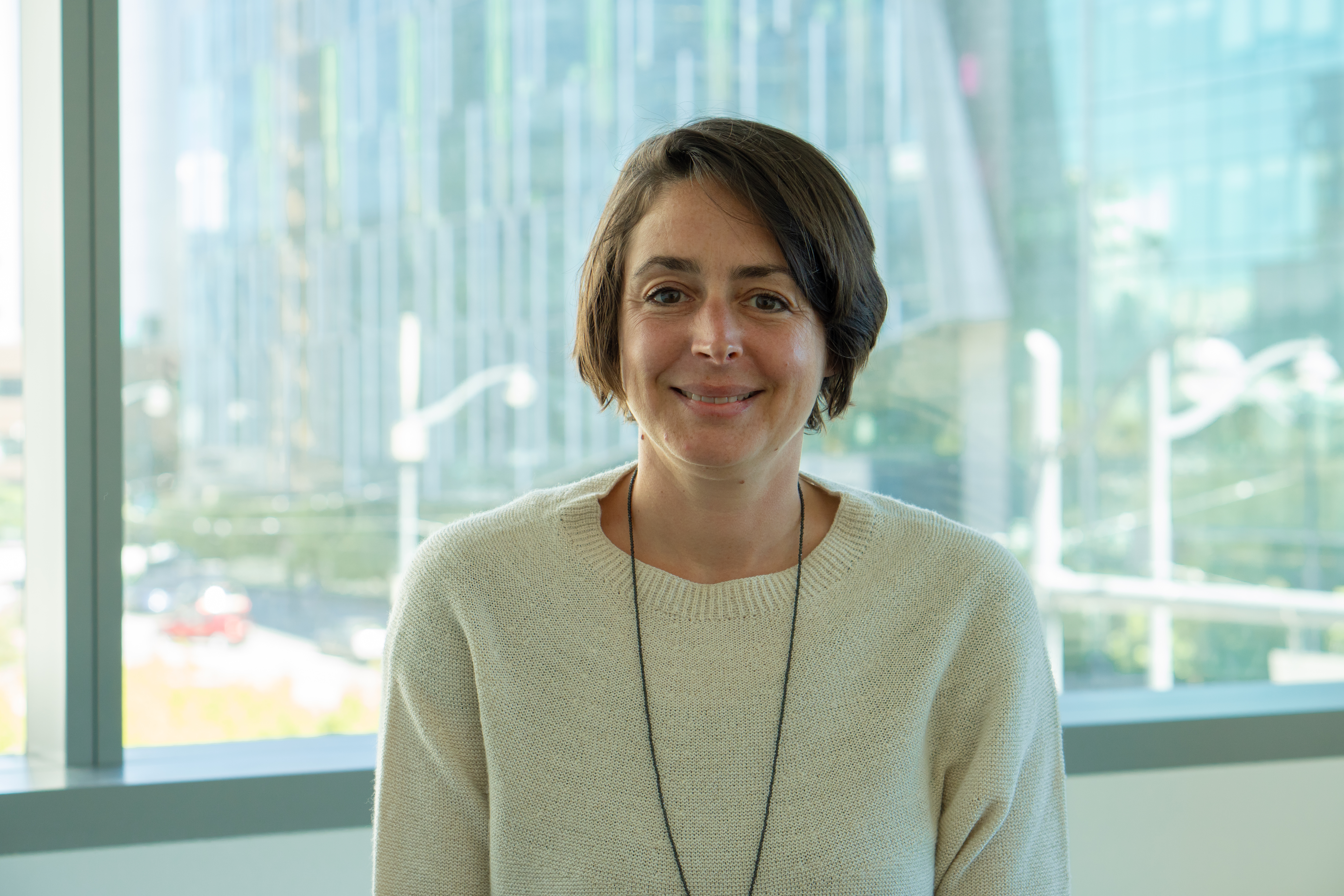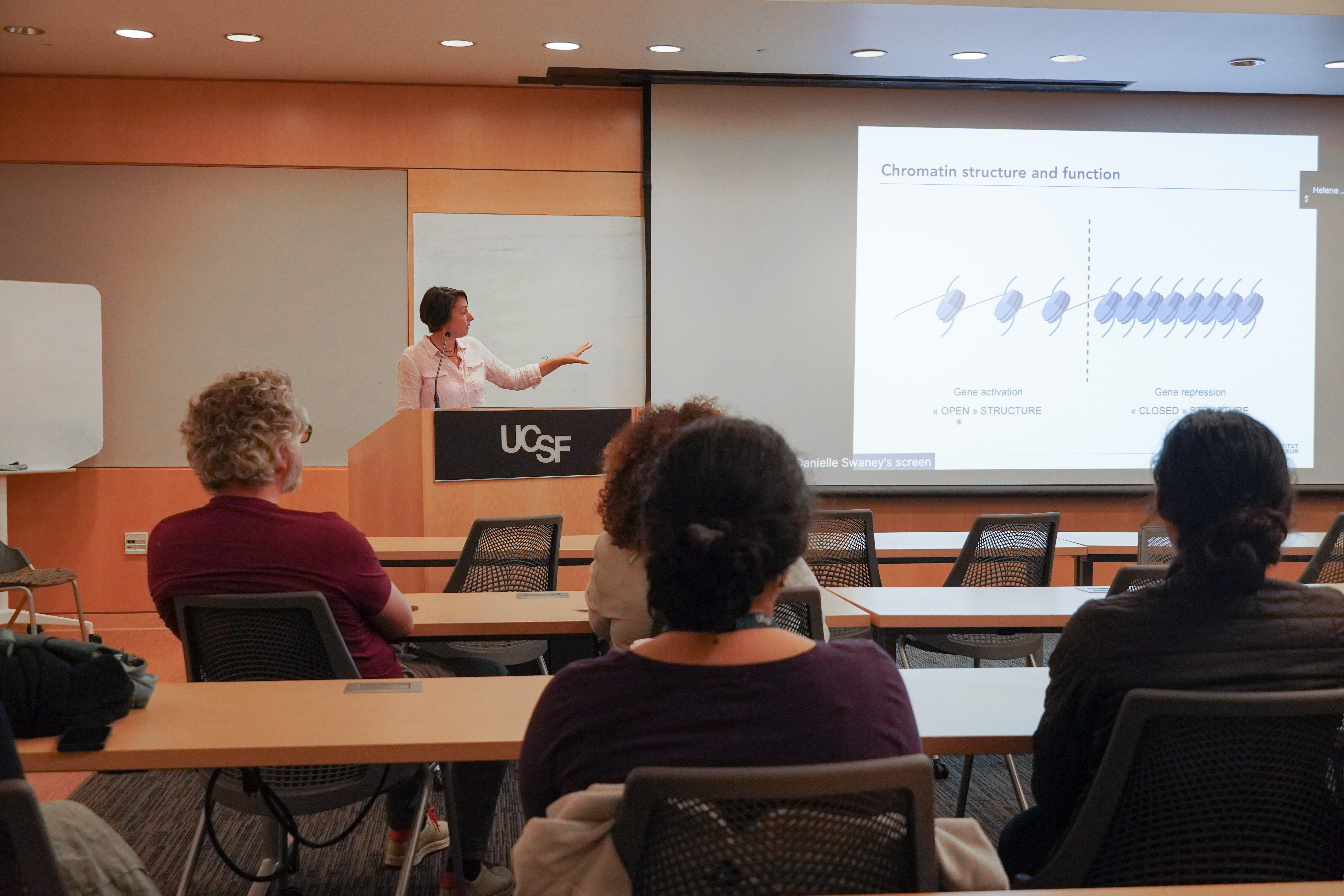
The Institut Pasteur–UCSF QBI "Faculty Mini-Sabbatical Program" is designed to exchange top academic talents from the Institut Pasteur and the University of California San Francisco for one- to three-month visits to build knowledge and new partnerships. The purpose of sabbatical leave is to provide an opportunity for faculty members to engage in scholarly, creative, professional, research, or other academic activities that will enhance the faculty member's further contributions to their institution and the world in the name of scientific research and excellence towards pandemic preparedness. In this sense, the visiting scientists will get the opportunity to interact with leading scientists from either institution on their research programs.

Melanie Hamon, Research Director of Chromatin and Infection at Institut Pasteur, provides a reflection of her time at UCSF as part of the Mini Sabbatical Program.
We study bacteria-host interactions at the cellular and molecular level. Specifically we look at how bacteria modify host responses during infection or colonization. We focus on the nucleus of the host cell and what molecular mechanisms are put in place on the bacterial and the cellular side to modify the architecture of host DNA.
I’ve always been fascinated by how bacteria have adapted to live in such close interaction with their host. We have a lot to learn from these interactions both to better understand bacterial infections but also to further our knowledge on human cells. The constant unraveling of new mechanisms and pathways will keep me interested and motivated for many years to come.
I have an active collaboration with Alicia Richards in the Krogan laboratory. We had sent samples prior to my arrival and experiments are under way to identify using mass spectrometry posttranslational modifications on host histones during infection with the bacterium Streptococcus pneumoniae. Follow up experiments have been discussed and will depend on the results from the primary experiment.
I have also discussed projects with Danica Galonic Fujimori, John Gross, Shaeri Mukherjee and Alison Williams. I have also discussed with members of Melanie Ott’s laboratory about their 3D culture models, which we are particularly interested in.
It is valuable to see how people do science as everyone has different creative ideas, but also from a cultural point of view. Science is performed in very different ways between France and the US and there are advantages to both. Working together is key to having the best of all cultures.
Meeting in person is essential, especially on first interactions. Also, having a live conversation will bring you to talk about subjects you might not have anticipated leading to bigger and greater ideas than those originally planned. In general, fruitful collaborations always stem from people knowing each other on a scientific but also personal level. Collaborations will always be more successful between 2 friends than between strangers that only have science in common.